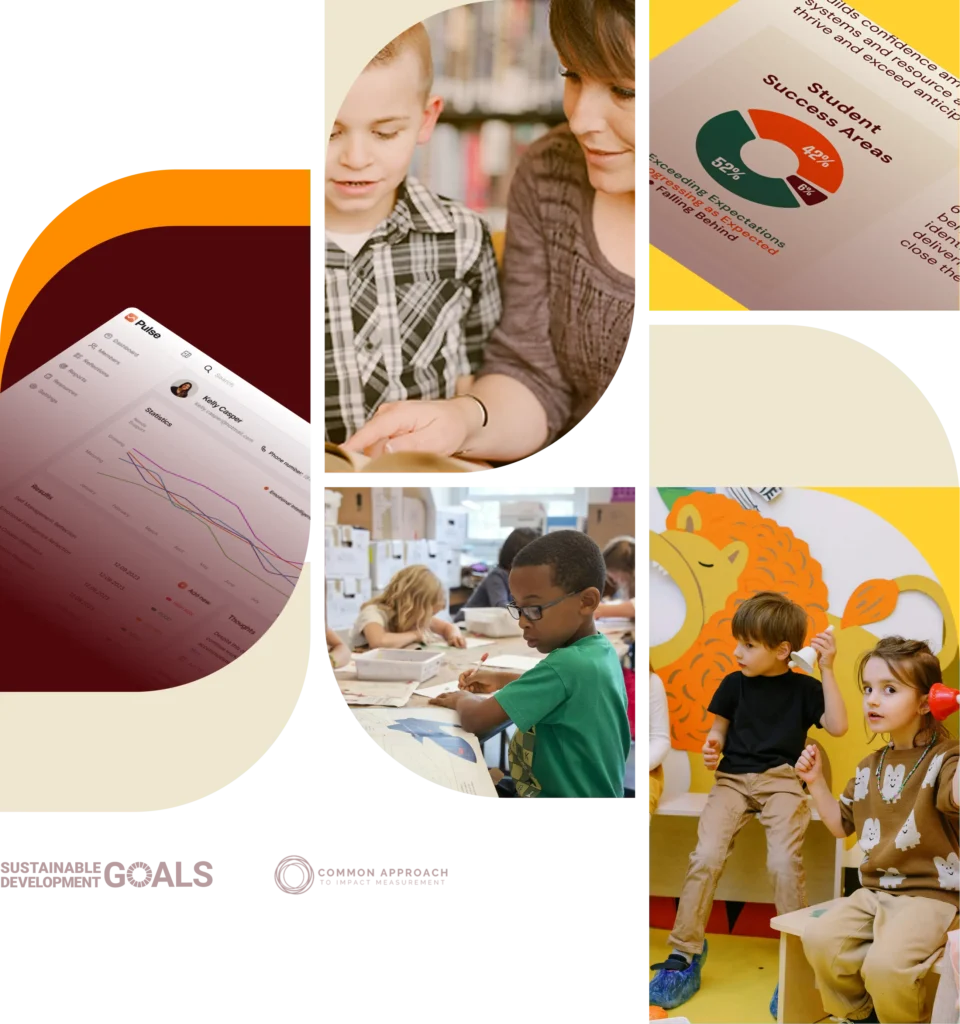STOP wasting time filling out reports no one reads
Pulse is a school management system that helps you turn every completed report into real support for students. As soon as a report is received, it can trigger a task, send an alert, or update your dashboard—so the right people can take action immediately. Admins see what’s going on, parents get resources to help at home, and you get the clarity you need to adjust your teaching and support your students.

See how Pulse helps teachers easily complete student reports, and how those reports lead to meaningful action that helps students thrive.
Inside this Demo:
Report Completion
Pulse prompts you to complete reports from your phone, so there’s no need to log into a system after a long day of teaching. If you prefer to log reports from your desktop or tablet, the process is just as easy.
Custom Notifications
When you complete a report, Pulse sends custom notifications to the right people, ensuring your input leads to timely support.
Suggested Resources
As data accumulates, Pulse suggests helpful resources tailored to support your students in making progress toward their individualized education plan goals.
Reports
Create visually compelling reports that help you advocate for your students using real-time data collected across your school.
Distribution
Send recurring email campaigns with up-to-date reports, giving your administrators, colleagues, and families the exact information they need to better support your class.
How it Works
Pulse connects every completed report into a chain reaction of custom alerts and suggested resources, so your teachers, students, and families know exactly what’s needed to improve outcomes.

-
Connect
Pulse connects to your existing student database through our open API — so your data flows in automatically. Quick, mobile-friendly surveys replace clunky forms, making it simple to keep everything up-to-date without extra work.
-
See
Dashboards update automatically as new information flows in, giving you real-time insights to better support teachers and help every student thrive.
-
Act
Pulse uses custom alerts to notify the right people on how to accurately support teachers and their students, while pushing targeted resources to families — so everyone stays connected and students get the support they need, when they need it.
Pulse supports every Role in your school community

Administration
Keep your school’s strategic plans, teacher development, and student progress on track and fully supported. Pulse gives you clear insights to report to your school board, so you can lead with the resources and clarity your school deserves.

Teachers
With Pulse, every report you complete automatically sets real action in motion—assigning follow-up tasks, alerting the right people to step in, and updating dashboards to keep everyone aligned.

Students
Know exactly how you’re progressing in your studies. With Pulse, you can track assignment deadlines, receive teacher feedback, and set personal milestones—all while staying connected to the right resources to help you reach your goals.

Families
Be confident that your voice is heard and your student is supported. With Pulse, communication never falls through the cracks. You’ll get automatic alerts about grades, attendance, and behavior—plus helpful resources like homework help, learning strategies, and tools to support your child’s success at home.

Consultants
Help your clients build school-specific strategic plans and know exactly how to resource their teachers, students, and families when it matters most. Pulse gives you clear insights that increase the value you bring to every client, eliminating guesswork and redundant reporting.
Key Features

Strategy Planning
Align your entire organization with strategic plans and individual development paths, all driving better outcomes for students, teachers, and staff.

Custom Notifications

Data Collection

Report Creation

Dashboards

Report Distribution
Keep Reporting simple and put your energy back where it belongs.
We can help.
Pulse keeps reporting simple, so you spend less time on busywork and more time engaged with students. No more scattered data. Just clear insights you can trust, tools that empower you to act, and the confidence that your work truly makes a difference.

Get Started Today

Sign Up

Onboard

See Results
See exactly how your school is growing, supporting students, and staying on track.
Frequently asked Questions
What is Pulse and how does it support teachers and students?
Pulse is a modern school management software designed to help schools strengthen their teacher support network and improve outcomes for both teachers and students. It streamlines how schools track progress, share insights, and build trust — giving staff the tools they need to stay connected, reduce burnout, and focus more time on teaching.
How does Pulse help build a stronger teacher support network?
Pulse makes it easier for schools to organize coaching, mentoring, and peer collaboration in one secure place. Teachers can share resources, set goals, and track progress together. School leaders can see what’s working and where more teacher support is needed, without adding more paperwork or disconnected tools.
Why do schools need school management software like Pulse?
Many schools struggle with fragmented systems that waste time and create gaps between teachers, students, and leadership. Pulse replaces scattered spreadsheets and clunky portals with a single platform that helps your team coordinate student information, track staff development, and manage daily operations with less stress and better data.
Why should our school care about impact metrics when supporting students?
Holistic student success goes beyond test scores. With Pulse’s built-in social impact assessment tools, your team can track clear, actionable metrics that show how programs, teaching strategies, and your teacher support systems are contributing to academic, social, and emotional growth. From student engagement to teacher well-being, Pulse helps schools measure what matters most. These social impact assessments give you real insights—not just assumptions—so you can make data-informed decisions that improve outcomes for students and staff. Additionally, with tools aligned to regulatory impact assessments, reporting to boards, funders, and families becomes more straightforward, transparent, and meaningful.
How does Pulse help with social impact assessment for schools?
Pulse goes beyond traditional dashboards by offering a built-in social impact assessment tool that helps schools evaluate more than just academic performance. With Pulse, you can easily track how your programs, teaching strategies, and teacher support initiatives affect student well-being, staff retention, and broader community outcomes. This kind of social impact assessment not only enhances internal decision-making but also supports transparent, data-driven reporting for boards, funders, and families. Pulse also equips schools to align with external reporting needs, making it easier to contribute to regulatory impact assessments and demonstrate accountability at every level.
What makes Pulse different from other school management software?
Unlike generic systems, Pulse is designed with student growth and teacher support at its core, rather than just focusing on grades and attendance. It brings together student data, staff collaboration, and real-time social impact assessment so you always know how your strategies are helping teachers and students thrive.
How do we get started with Pulse?
Getting started is simple. Our team helps you set up your custom dashboards, onboard staff, and connect your existing data. From day one, you’ll have a clear picture of how your teacher support network is working — and where to strengthen it for the greatest impact.